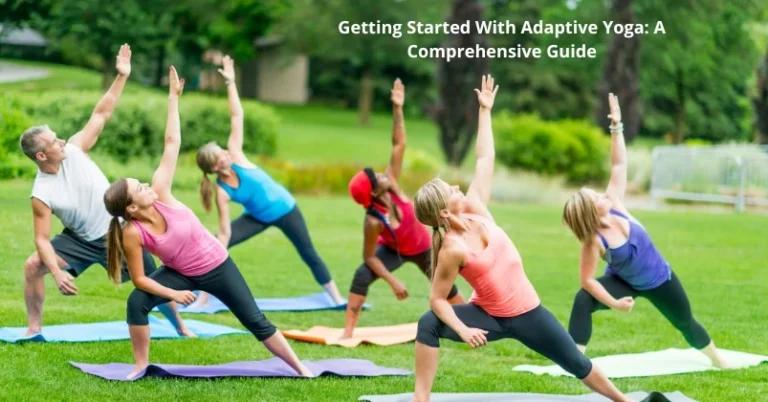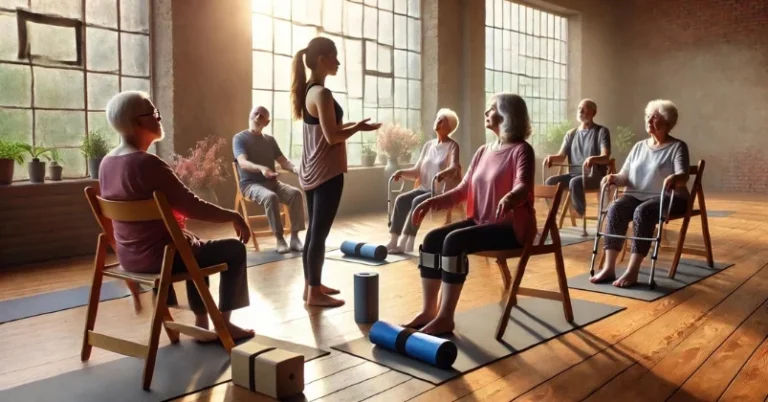Exercise Excuses: How To Overcome Them And Stay Motivated
Exercise is an essential aspect of maintaining a healthy lifestyle, but it is often challenging to find the motivation and time to work out regularly. Many people come up with excuses to avoid exercising, ranging from not having enough time to feeling too tired. However, these excuses can have a significant impact on your health and fitness, leading to weight gain, decreased energy levels, and increased risk of chronic diseases.
Understanding and overcoming exercise excuses is crucial for achieving your fitness goals. It is essential to recognize that exercise is not just a physical activity but also has mental and emotional benefits. Regular exercise can help reduce stress, improve mood, and boost self-confidence. However, it is easy to fall into the trap of making excuses and skipping workouts, which can lead to a lack of progress and motivation.
In this article, we will explore the most common exercise excuses and their solutions, the role of exercise programs and personal trainers, and how to incorporate fitness apps and social exercise into your routine. We will also discuss how exercise excuses change with age and answer frequently asked questions about exercise and motivation. By understanding and overcoming exercise excuses, you can achieve your fitness goals and improve your overall health and well-being.
Key Takeaways
- Exercise is crucial for maintaining a healthy lifestyle and has physical, mental, and emotional benefits.
- Common exercise excuses include lack of time, energy, and motivation, but they can have a significant impact on your health and fitness.
- Understanding and overcoming exercise excuses requires recognizing their impact, finding solutions, and incorporating strategies like exercise programs, personal trainers, and fitness apps into your routine.
Understanding Exercise Excuses
It's no secret that exercise is essential to our overall health and well-being. However, despite knowing this fact, many people still struggle to make exercise a regular part of their routine. One of the most common reasons people do not exercise is making excuses.
Excuses can take many forms, from fear and laziness to feeling too busy or too old. Some people may feel that they are too fat or too tired to exercise, while others may experience pain or soreness that prevents them from working out. Boredom, overtraining, and injury are also common excuses that people use to avoid physical activity.
While some excuses may have a valid basis, many are simply a way to avoid facing the challenge of starting or maintaining a fitness routine. It's important to understand that making excuses can be a self-defeating behavior that ultimately prevents us from achieving our health and fitness goals.
One way to overcome exercise excuses is to identify the underlying reason behind them. For example, if fear is holding you back from trying a new workout, consider taking a beginner's class or working with a personal trainer to build your confidence. If you're feeling too busy, try scheduling your workouts in advance or finding ways to incorporate physical activity into your daily routine.
It's also essential to remember that exercise doesn't have to be a chore. Finding activities that you enjoy can help combat boredom and make working out more enjoyable. Additionally, listening to your body and taking rest days when needed can help prevent overtraining and injury.
In summary, understanding exercise excuses can help us overcome them and make physical activity a regular part of our lives. By identifying the underlying reasons behind our excuses and finding ways to make exercise enjoyable and sustainable, we can achieve our health and fitness goals and live a happier, healthier life.
Impact of Excuses On Health And Fitness
Making excuses for not exercising can have a significant impact on both physical and mental health. Lack of physical activity can lead to a decline in fitness level, which can result in a range of health problems.
One of the most common excuses is not having enough time to exercise. However, even short bouts of physical activity can have a positive impact on overall health and fitness. Physical activity can help improve strength, energy levels, and sleep quality while reducing stress and the risk of chronic illness.
Another common excuse is joint pain or fatigue. While it is important to listen to your body and rest when needed, regular physical activity can help alleviate joint pain and improve energy levels. Additionally, exercise releases endorphins, which can boost mood and mental health.
Excess weight is another common excuse for not exercising. However, regular physical activity can help with weight management and improve overall health. Exercise can also help reduce the risk of chronic health conditions such as heart disease, diabetes, and arthritis.
In summary, making excuses for not exercising can have a detrimental effect on both physical and mental health. Incorporating physical activity into daily routines, even in small amounts, can have significant benefits for overall health and fitness.
Common Exercise Excuses and Their Solutions
Barring legitimate logistical obstacles, there are some common exercise excuses that so many of us (yes, ourselves included) come up against time and time again. Here are some of the most common exercise excuses and their solutions.
Excuse #1: “I Don’t Have Time”
Solution: Keep it short! This is one of the toughest and most common barriers to exercise. But, even a 10-15 minute workout can make a difference. Try to fit in short workouts throughout the day or make use of your lunch break. You can also try interval training, which involves short bursts of high-intensity exercise followed by periods of rest. This can be a quick and effective way to get your heart rate up and burn calories.
Excuse #2: “I'm Not Motivated”
Solution: Find your why! Motivation can be hard to come by, but finding your why can help. Why do you want to exercise? Is it to improve your health, reduce stress, or feel more confident? Once you have identified your why, write it down and keep it somewhere visible. This can serve as a reminder of why you started and help you stay motivated.
Excuse #3: “I'm Too Tired”
Solution: Change your approach! Exercise can boost your energy levels, so it's worth giving it a try even when you're feeling tired. If you're not up for a high-intensity workout, try something more low-key like yoga or stretching. Alternatively, try changing the time of day you exercise. If you're not a morning person, try working out in the afternoon or evening instead.
Excuse #4: “I Don’t Have The Right Gear”
Solution: Keep it simple! You don't need fancy equipment or expensive gym clothes to exercise. All you need is a good pair of shoes and comfortable clothing. If you're not sure what type of shoes to wear, visit a specialty store and get fitted by a professional. They can help you find the right shoes for your foot type and exercise routine.
Excuse #5: “I'm Bored”
Solution: Mix it up! Doing the same workout every day can get boring fast. Try mixing up your routine by trying new exercises or activities. If you're a runner, try cycling or swimming. If you're a fan of high-intensity interval training, try circuit training or dancing. You can also try listening to music or working out with a friend to keep things interesting.
Excuse #6: “I Can’t Afford A Gym Membership”
Solution: Get creative! You don't need a gym membership to exercise. There are plenty of ways to work out for free or on a budget. Try going for a walk or run outside, doing bodyweight exercises at home, or using household items as workout equipment (like using a chair for tricep dips). You can also find free workout videos online or join a community fitness group.
Remember, consistency is key when it comes to exercise. Even if you can only fit in a short workout, it's better than nothing. Find what works for you and stick with it.
Role Of Exercise Program And Personal Trainer
When it comes to achieving your fitness goals, having a well-designed exercise program and a qualified personal trainer can make a world of difference. An exercise program tailored to your specific needs and goals can help you stay motivated and focused, while a personal trainer can provide you with the guidance and support you need to achieve your goals safely and effectively.
A good exercise program should include a variety of exercises that target different muscle groups and incorporate both cardio and strength training. It should also take into account your fitness level, any health conditions you may have, and your personal preferences. Whether you prefer working out at the gym, swimming, or doing yoga, there's an exercise program out there that's perfect for you.
A personal trainer can help you create an exercise plan that's tailored to your specific needs and goals. They can also provide you with the guidance and support you need to perform exercises safely and effectively. A personal trainer can also help you stay motivated and accountable, which can be especially helpful when you're just starting or when you're trying to push past a plateau.
If you're new to exercise or if you're not sure where to start, working with a personal trainer can be especially beneficial. They can help you learn proper form and technique, which can help prevent injuries and ensure that you're getting the most out of your workouts. They can also help you set realistic goals and track your progress, which can be incredibly motivating.
Overall, having a well-designed exercise program and a qualified personal trainer can help you achieve your fitness goals faster and more effectively. Whether you're looking to lose weight, build muscle, or just improve your overall health and fitness, investing in a gym membership, a fitness program, or a personal trainer can be a great way to get started.
Incorporating Fitness Apps And Social Exercise
Fitness apps have become increasingly popular in recent years, and for good reason. These apps can help you track your progress, set goals, and provide you with personalized workout plans. Many of these apps are available for free or for a low cost, making them accessible to everyone.
One of the biggest advantages of fitness apps is that they can be used on your phone, which means you can take your workout with you wherever you go. This makes it easier to stay on track with your fitness goals, even when you're busy or traveling.
In addition to fitness apps, social exercise can also be a great way to stay motivated and accountable. Social exercise involves working out with a group of people, whether it's in person or online. This can provide you with a sense of community and support, which can make it easier to stick to your fitness routine.
There are many ways to incorporate social exercise into your routine. You can join a fitness class, find a workout buddy, or participate in online fitness challenges. Social exercise can also be a great way to try new activities and workouts, as you can learn from others and get inspired by their progress.
Overall, incorporating fitness apps and social exercise into your routine can be a great way to stay motivated and on track with your fitness goals. With so many options available, it's easy to find something that works for you and fits into your lifestyle.
Understanding And Overcoming Exercise Excuses With Age
As we age, it can be easy to come up with excuses for not exercising. However, staying active is critical for maintaining good health and quality of life. Here are some common exercise excuses and tips for overcoming them as we age:
“I'm Too Old To Exercise”
Exercise is important at any age, and it's never too late to start. Regular exercise can help improve balance, flexibility, and strength, which can help prevent falls and injuries. According to the National Institute on Aging, older adults should aim for at least 150 minutes of moderate-intensity exercise per week, such as brisk walking or water aerobics.
“I Have Joint Pain”
Joint pain can make exercise challenging, but there are still plenty of options. Low-impact exercises like walking, swimming, and cycling can be easier on the joints. It's also important to listen to your body and not push yourself too hard. Working with a physical therapist can also help develop an exercise plan that accommodates joint pain.
“I Don’t Have Time To Exercise”
With busy schedules, it can be tough to find time to exercise. However, even short bursts of activity can be beneficial. Try breaking up exercise into smaller sessions throughout the day, such as taking a 10-minute walk after each meal. It's also important to prioritize exercise and make it a part of your daily routine.
“I'm Not Sure How To Exercise Safely”
If you're unsure about how to exercise safely, it's important to consult with a healthcare professional. They can guide exercise guidelines and help develop a safe and effective exercise plan. Additionally, working with a personal trainer or attending exercise classes can help ensure proper form and technique.
Remember, exercise is important for maintaining good health and quality of life, no matter your age. By understanding and overcoming common exercise excuses, you can stay active and healthy for years to come.
FAQs
Some common excuses people make for not exercising include not having enough time, feeling too tired, lacking motivation, and not having access to a gym or equipment. It's important to recognize that these excuses are often just that – excuses – and can be overcome with a little effort and determination.
One effective way to overcome a lack of motivation to exercise is to find an activity that you enjoy. This could be anything from dancing to hiking to playing a sport. Additionally, setting specific goals and tracking your progress can help keep you motivated.
There are many ways to make exercise more enjoyable, such as listening to music, working out with a friend, trying new activities, and varying your routine. It's also important to remember that exercise doesn't have to be a chore – it can be fun and rewarding.
Regular exercise has many benefits, including improved physical health, increased energy levels, reduced stress and anxiety, and improved mood. It can also help prevent chronic diseases such as diabetes and heart disease.
One effective way to stay on track with your exercise routine is to schedule your workouts in advance and treat them as you would any other important appointment. Additionally, finding a workout buddy or joining a fitness class can provide accountability and motivation.
If you miss a workout, it's important to get back on track as soon as possible. One strategy is to make up for the missed workout on a different day or to add an extra workout to your schedule the following week. It's also important to be kind to yourself and not get discouraged – one missed workout is not the end of the world.








